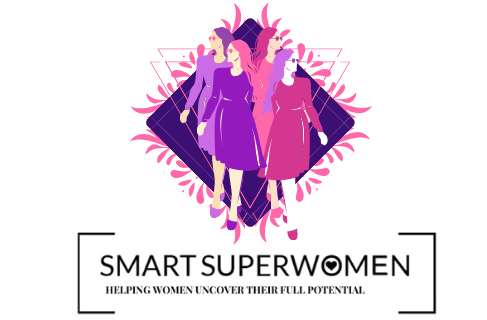
by rossanahead | Mar 8, 2012 | career, Education, family, woman
By Paige de Guzman
There’s a love and hate relationship between me and college. One minute I was loving it, then hating it the next. I love vacations. I love lazy days and happy mornings when I don’t have to wake up early to go to school. I love it when I don’t have to sit in the bus in the middle of traffic and end up late for class.
Nevertheless, I did my best. I woke up early, finished my assignments, studied my readings, and aced my classes. Sometimes, I would complain, but always, I tried to do my best. At the time, I always thought of what my parents told me: “It’s for your future.”
And oh, how right they were!
Of course, the realization did not come right away. When I graduated, I went job-hunting, taking tests and doing interviews. At first, it was frustrating. But because I knew exactly what I wanted, I did not lose hope. Today, I am working full time as a publishing specialist while doing part-time work as a writer.
But reaping the rewards of a good education does not stop with getting a good job. A good education reflects on the quality of your work. It shows on how you handle pressure. Aren’t exams, graded recitations, and project deadlines stressful? Well, I’ve realized that they’re almost the same—deadlines in school and deadlines at work. The difference is that you get paid with the latter. That’s when I tell myself, “Thank God, I did my best in school!”
A good education also reflects on how well you relate to people. It shapes into the kind of person that you are. Before college, I was a socially awkward girl who stammered a little bit in class. I suppose, all those graded recitation sessions fixed that.
I might have hated school at one time or another, but looking back, I’m glad I did my best. I know that I wouldn’t be here now if I hadn’t burned the midnight oil.
Photo by Element5 Digital on Unsplash

by rossanahead | Mar 8, 2012 | career, children, Education, family, Jing Lejano, parenting, technology, travel, woman
By Jing Lejano
When we started the Smart Super Women blog exactly one year ago, we never thought that we’d play witness to daredevil feats of adventures. We wanted to hear inspiring stories of mothers, daughters, sisters, warriors, peacemakers, intellects, vamps, homemakers, career rats, readers, adventurers, and dreamers who were going through their everyday lives. But we didn’t think that they’d do so with such daring and gumption.
Take the case of Mari-An Santos, a cum laude graduate of the University of the Philippines. We happily read about her trips to Thailand, when she suddenly revealed that she was packing her bags and moving to Romania! She had received a grant to pursue her Master’s degree in that European country. In her latest entry, she writes, “Studying in a foreign land has not only opened my eyes to the reality that I am a citizen of the world, it has made me appreciate my being Filipino all the more. Even as I learn about other peoples, cultures, and places, I have learned to value home even more.”
A collection of personal essays for and by women, the Smart Super Women blog was created to inspire its readers to tackle everyday challenges with courage and to work for the fulfillment of their dreams with conviction.
Most of the contributing writers are working mothers with school-aged children. They discuss such topics as careers and children, literacy and education, family and friends, and the quest for self-improvement. Because the writers contribute on a regular basis, readers have seen them tackle different challenges, resulting in a very interesting read.
There’s newspaper editor Gina Abuyuan, who never got around to traveling alone when she was single, but who finally had the nerve to roam the streets of Chiang Mai all by her lonesome now that she is “older, tougher, not afraid to tell someone off.” Her latest solo trip had her enjoying the sound of waves crashing at a beach side resort in the provinces. Oh, and may we add that she also recently opened a pub together with her life partner and some friends?
Of course, the adventures aren’t always of the adrenaline-pumping kind. Sometimes, we see these women finding epiphany in a cup of coffee shared with friends, in the few hours they sweat it out in the gym, or in the few minutes they spend with their children as they drive them to school.
But whether they’re raising their kids in the Philippines like writer Ruth Floresca, who’s a work-at-home mom to four boys, or juggling their time between career and home in Australia like editor Lyra Pore, who gets up at five in the morning to bring her daughters to the day care center, these women always find creative ways to make every opportunity a learning experience.
Ruth goes on date nights with her sons as a way of catching up with what’s going on in their lives. She writes, “It’s a continuous process, this getting to know one’s children because they grow up so fast and I don’t want to wake up one morning to find out that I don’t know anything about them anymore.”
Lyra Pore Villafana takes swimming lessons as a way of relaxing from the challenges of living an immigrant’s life. “Life overseas is so different to what we’ve all been used to… But doing something for oneself isn’t unique to Asian moms coping with the stresses of building a new life in a different country.”
Maridol Bismark bombards her sons with questions to learn her way in the digital world. She writes, “I work for an online entertainment portal. Every day, I am exposed to words and phrases that are just starting to make sense to me…I feel like a child lost in a newfangled world, groping for a hand to guide me. Fortunately, the hand belongs to the boy who appreciates everything that I’ve done and will still do for him.”
As these women continue on their journey to live, love, and learn in the modern age, Smart Super Women will be right alongside them, watching their every step, hoping to inspire others to live as fearlessly and as brilliantly as they do.

by rossanahead | Mar 8, 2012 | career, children, Education, environment, woman
By Leslie G. Lee
When I started my senior year in high school, I smugly thought I had my life all mapped out. I was now at the top of the so-called food chain; I had been promoted to editor-in-chief of our school paper from my previous post as features editor; and, like my older sister before me, I planned to study in De La Salle University, majoring in LIA-COM, a fusion of Liberal Arts and Business degrees.
But as usual, life threw me in for a spin when it was time for the college entrance exams.
I was not expecting to be accepted by the Ateneo. Never. At all. My mind was so set on DLSU that it didn’t occur to me that I actually had a fighting chance for a spot in that prestigious university. When I got my admission letters from the two universities, my parents and I had a huge row. I was adamant about La Salle: almost all my friends would be going there, it was only an hour away from home, I’d be receiving a partial scholarship for English, I’d be graduating with a double degree of sorts, et cetera ad infinitum. But my parents were equally firm about the Ateneo—especially my dad, the entrepreneur who wasn’t able to obtain a college degree and wanted his second daughter, his second child, to attend a university that offered a “higher” quality of education.
It took about a month and plenty of parental bribes before I finally caved in and was reluctantly chaperoned and dragged off to pay my confirmation fee at the Ateneo de Manila University.
Now I wonder why I had been so against the idea in the first place.
It’s been more than a decade since I became an Atenean alumni, and it never fails to amaze and astound me each time I remember how much I’d thrived—not just survived—in those four years.
In Ateneo, I was plucked out of my Chinese comfort zone, learned to interact and adapt to true-blue Pinoys, and was exposed to other Filipino traditions. I learned how to drop my Chinese accent, talk Tagalog properly, and speak better English. I was introduced to fascinating topics such as the Holocaust, subjects like Philosophy and Film Theory, and the “science” of deciphering the Bible. I grew to appreciate fabulous short stories such as “The Lottery” and “Beheading of the Heads” and film classics such as Rear Window and Il Postino. And I don’t know if this will seem superficial and shallow to others, but I appreciate the image and reputation that the Ateneo has established, as they have given me access to respectable companies here and abroad.
To continue my litany of praises (and bragging rights) for being an Atenean would take far too much time and space, so let me just say that I will forever be grateful for being “coerced” to study in Ateneo. I love and am proud of being a product of the Ateneo.
Because, you see, I don’t think of education or studying as merely something you do by the book—it’s a way of life. With the right kind of education, you’re taught to deal with people from all walks of life. You study subjects and explore topics that trigger your brain synapses. You discover how you are as a person, your working style and ethics (based on group projects), and how to navigate your way once you’ve left the confines of school and entered the real world.
Good education prepares you for these things, and being a good—if not excellent—student brings you good karma, so to speak. Isn’t it any wonder that almost all companies require a copy of one’s TOR (Transcript of Records) for each application?
Featured Photo Courtesy of ABS-CBN News

by rossanahead | Feb 19, 2012 | career, children, Education, family, parenting, woman
By Maridol Rañoa-Bismark
What do you do when you have to rush to work in the morning, beat deadlines in the afternoon, and get home ready to drop at night? Certainly not end the day without checking on your child whether he’s a tyke, a teenager, or a college-age young man like mine.
Sharon Cuneta’s commercial about coming home at night and checking on her sleeping children still strikes a chord in my heart, even if it’s been off the air for quite some time. It’s not that I harbor any illusions of being a Megastar; certainly not. It’s just that it paints the perfect picture of my life these days, so crazy that I can’t even catch my son while he’s awake.
How do I squelch the guilty feelings threatening to kill me with visions of a youth gone wild? By driving my son wherever he needs to be, that’s how.
In the mornings, I drive him to school. On weekends, I repeat the ritual when he has to go to a debate tournament or a required school event.
Trapped in the confines of my trusty vehicle, I strike up a conversation with my son. The poor guy—even if he’s about to nod off to sleep—responds. Never mind if it’s a vague “It’s OK” to my question about how the school fair went. That’s enough for a mom like me who’s anxious to connect with her son.
When I’m lucky, my son’s sentences are longer; his replies more colorful. He lets me into his world—a world where an older cross-enrollee acts like a know-it-all, making everyone snicker, and where teacher jokes rule. I feel like I’m part of a secret society where sorrow and laughter are shared. For a while, looming deadlines recede and the pressure of having to deal with rushed ideas fade. I am in a faraway land with my son—a land where life is simpler and I don’t have to deliver numbers to survive. It’s a breather in my hectic pace, a good rev-up for a brand-new work day.
Now you know why I won’t give up those morning drives for anything in the world except, perhaps, for a big breaking story. Our moments of bonding moments make me more human in the dog-eat-dog world I step into every working day. I remember what life is all about: feeling, sharing, being human.
Thank you, Ben, for making your harassed mom less of a monster and more of a human being through the years.
Featured Photo Courtesy of Cars Website

by rossanahead | Feb 15, 2012 | career, Education, Mari-an Santos, travel, woman
By Mari-An Santos
I was sitting at a popular restaurant in Bucharest, having lunch with a Romanian friend, and taking in the beautiful surroundings. There were blondes. There were brunettes. There were so many foreigners—and then it dawned on me, I am the foreigner. With my brown skin, small eyes, and jet black hair, I stood out like a sore thumb in a sea of Caucasians.
I’ve lived in the Philippines all my life. And because I’ve only traveled to nearby Asian countries, “looking different” had never been an issue for me. Now that I’m living in a European city that is not quite cosmopolitan, I find myself “looking different.” There are only a handful of Asians at the student dormitory where I live. I’ve seen a couple of Chinese and Japanese citizens, but that’s about it. The Filipino population here, not counting me and my schoolmate, is a measly 11.
On any given day, it’s not unusual to be gawked at on the street. I’ll be walking down the street and get stared at by my fellow pedestrians. I’ll be riding my bike to class and be greeted by “Ni hao” or “Sayonara.”
The other day, I was asking a shop owner about their products when she tells me that some of the soaps she makes contain Chinese teas. I politely tell her that it’s nice to know and that I am not Chinese. She apologizes and asks where I’m from.
At first, I was appalled by such occurrences, especially after someone told me that we Asians look alike. I explained to him that I could actually tell the Koreans from the Japanese, the Chinese from the Filipino. But eventually, I began to see things his way. From where I’m standing, I wouldn’t be able to tell the Europeans apart either.
And that’s perfectly fine.
Studying in a foreign land has not only opened my eyes to the reality that I am a citizen of the world, it has made me appreciate my being Filipino all the more. Even as I learn about other peoples, cultures, and places, I have learned to value home even more.
Photo by Kyle Gregory Devaras on Unsplash





